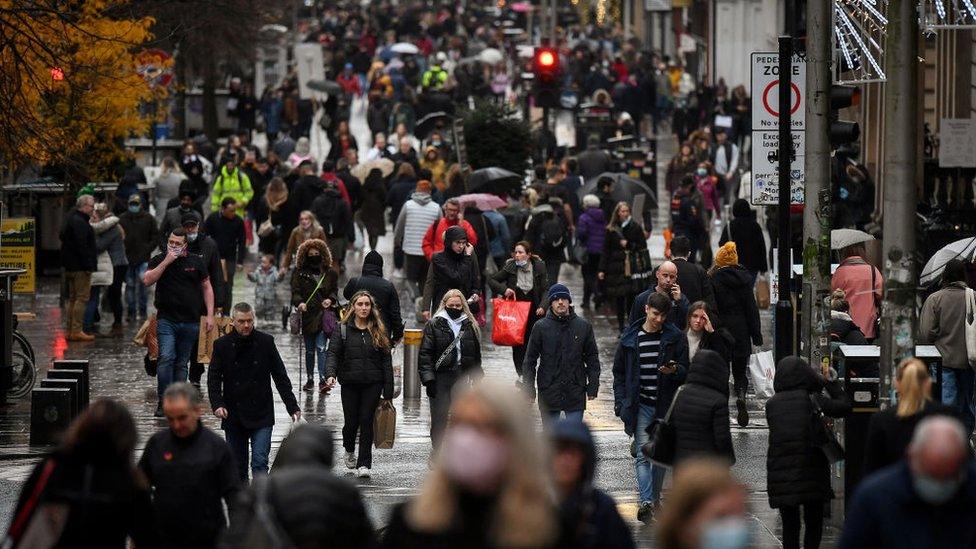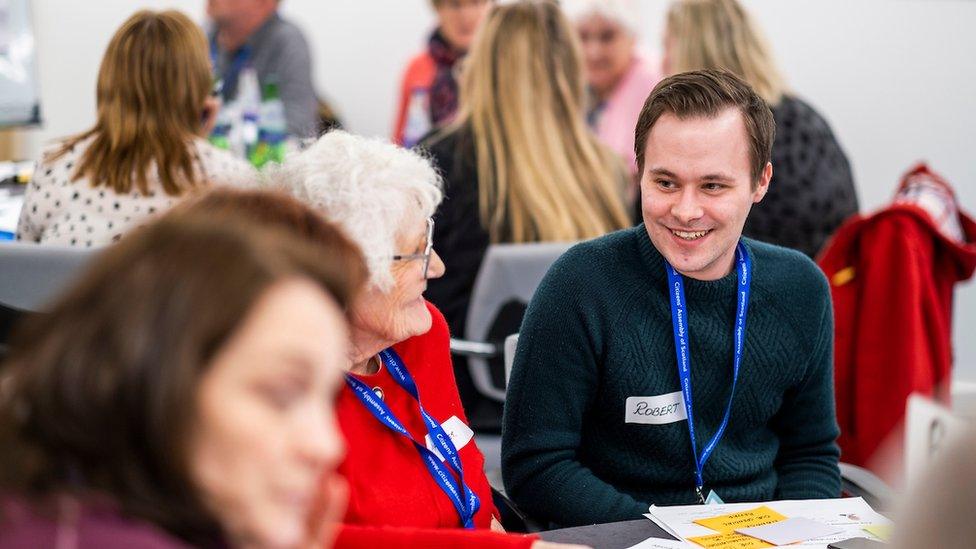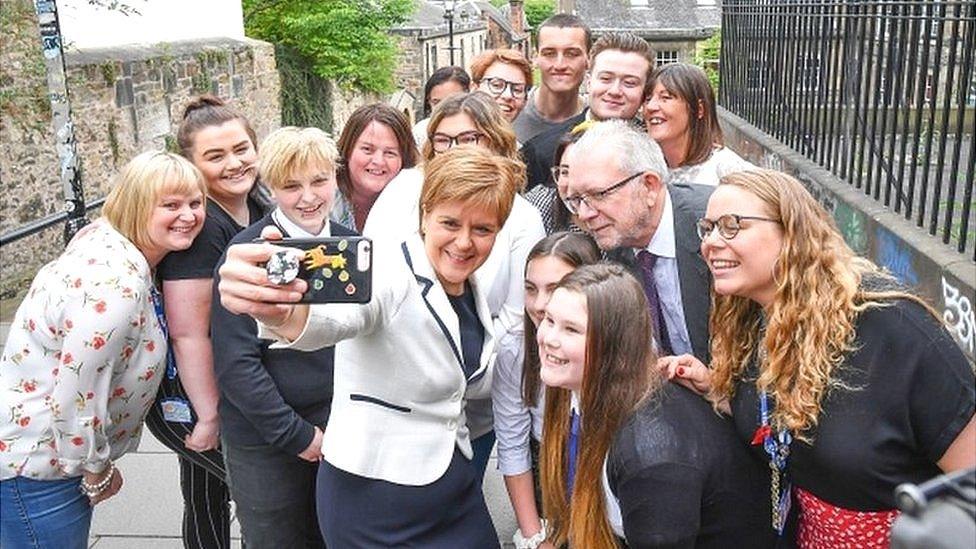Scottish Citizens Assembly unveils vision for the future
- Published

Scotland's first Citizen's Assembly has published 60 recommendations aimed at improving how the country is run.
The assembly was made up of 100 members of the public who broadly represent Scotland's demographics, geography and political views.
Their non-binding proposals include making all employers pay the living wage and the devolution of further powers over tax and immigration.
The Scottish government will produce an action plan in response to the report.
The assembly was announced by Nicola Sturgeon at the SNP conference in 2019 and was tasked with answering three questions:
What kind of country are we seeking to build?
How can we best overcome the challenges we face, including those arising from Brexit?
What further work should be carried out to give people the detail they need to make informed choices about the future of the country?
The assembly was initially dismissed by the Scottish Conservatives and Liberal Democrats as a "talking shop for independence".
But its final report does not express any views on whether or not independence would be good for the country.
Instead, members attempted to reach as broad agreement as possible on what changes Scotland could make to improve the lives of its citizens.
The recommendations include pushing for the abolition of zero hours contracts, exploring whether a standard four-day working week should be introduced and establishing an anti-poverty task force in every council area.

The assembly was paused in March due to the coronavirus pandemic
Assembly members also want to see permanent mental health support liaison officers in every school, and have suggested that the national minimum wage for people aged 18-24 should be increased to a national living wage. They say the state pension age should also be lowered.
They called on Scotland to be the first in the world to ban the unnecessary use of non-biodegradable products and urged the government to invest more in new industries such as green energy, science and technology.
The group wants the government to publish a register of organisations showing their compliance with tax and employment measures using a "green/amber/red system".
The assembly was paused in March due to the Covid-19 pandemic and resumed in September.
On the subject of Covid-19, the group said it wanted the government to publish a plan for business investment, focusing on smaller businesses and those that "behave ethically".
And they want to see higher wages for all NHS staff.
People 'actively included'
The report said: "The Scotland we want to see should lead with integrity, honesty, humility and transparency, in a self-sufficient and innovative way, and actively include the people of Scotland in decision-making."
Convener Kate Wimpress said the assembly showed Scotland was "at the forefront of democratic innovation".
She added: "This is not a box ticked, or a full stop, but a beginning, opening up a new chapter in our democracy with citizens at its heart."
Cabinet Secretary for the Constitution Michael Russell called the report "comprehensive" and "insightful" as he thanked members for their efforts.
He said ministers looked forward to meeting members of the assembly "in due course to hear more about their recommendations and the experience of being part of this unique process".
How did the Citizens Assembly work?
The basic idea was for members of the public to be selected, much like a jury, to listen to evidence from all sides in Scotland's constitutional debate.
They were able to question experts and other witnesses and discuss things among themselves before making non-binding recommendations on the country's future.
The hope was that this "direct democracy" would help to restore people's trust in the political process by involving ordinary people rather than politicians, parties and other vested interests.
Ms Sturgeon said at the time that she was inspired by an assembly set up in Ireland to discuss and attempt to reach consensus on a series of divisive issues, most notably abortion.
Assembly members received a "gift of thanks" of £200 per weekend to recognise their time and contribution, with travel, accommodation and childcare expenses also being met.
Related topics
- Published26 June 2019
